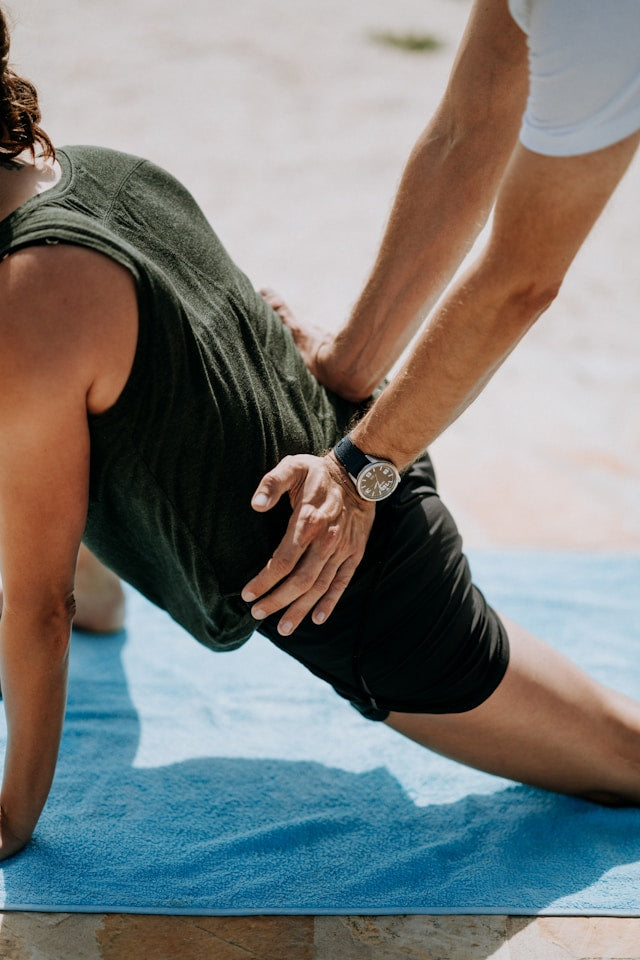
6 Ways Injury Recovery Impacts Your Overall Wellness Journey
Navigating the path of injury recovery transcends physical healing; it profoundly impacts your overall wellness journey. An injury, whether minor or severe, not only imposes limitations on physical activities but also introduces emotional and mental challenges.
Recognizing and understanding these impacts is crucial to fostering resilience, promoting effective recovery, and enhancing your holistic well-being. This document explores six key ways injury recovery can influence your wellness voyage, shedding light on the interconnections between physical recovery, mental health, and emotional resilience.

Physical Limitations and Adaptations
Injury often results in temporary or permanent physical limitations, compelling individuals to adapt their daily routines and fitness regimens. This adaptation process can be frustrating but also presents an opportunity for discovering new interests and activities that accommodate your current physical state. It's essential to view these adaptations not as setbacks but as steps toward a new form of normalcy and wellness.
Adapting to these changes requires patience and creativity. It may involve modifying your exercise routine to include low-impact activities, such as swimming or cycling, which can maintain cardiovascular health without putting stress on the injury. Engaging in physical therapy or guided exercises can also accelerate recovery, helping to rebuild strength and flexibility in a controlled and safe manner.
Legal Considerations
In some cases, an injury may result in legal proceedings, such as filing a personal injury claim or workers' compensation claim. These processes can be complex and emotionally taxing, requiring individuals to navigate through medical records and insurance policies while also balancing their recovery journey. It's crucial to seek proper legal advice during this time to ensure that your rights are protected and that you receive fair compensation for your injury.
These legal considerations can add an extra layer of stress and uncertainty to the recovery process, making it essential to prioritize self-care and find healthy ways to cope with any associated anxiety or frustration. As the West Coast Trial Lawyers put it, many who are injured in car accidents, slip and fall accidents, or bicycle accidents, for example, may suffer only minor injuries, leading them to think they don’t need a lawyer. Regardless of the severity of your injuries or pain, the long-term outcomes can be unpredictable and may worsen over time. Consulting with a personal injury lawyer can provide you with peace of mind and ensure that your well-being and legal rights are protected.
Mental Health Considerations
The impact of an injury on mental health cannot be understated. The challenges of physical recovery can lead to anxiety, depression, or stress, particularly if the recovery process is prolonged or complicated. It is important to monitor these mental health symptoms closely and seek professional help when necessary to prevent them from overshadowing the recovery process.
Promoting mental well-being involves integrating mindfulness practices, meditation, or other stress-reduction techniques into your daily routine. Staying connected with a supportive community, whether online or in-person, can also contribute to a sense of belonging and provide an avenue for sharing experiences and coping strategies. Remember to prioritize your mental health as much as your physical recovery during this time.
The Role of Nutrition in Recovery
Nutrition plays a pivotal role in the injury recovery process, serving as the foundation for building strength, reducing inflammation, and hastening the healing process. A well-balanced diet rich in vitamins, minerals, and antioxidants can support tissue repair and bolster the immune system, thereby reducing the recovery time. Incorporating foods high in protein, omega-3 fatty acids, and essential nutrients, like fruits and vegetables, can significantly impact your body's ability to recover. It's also important to stay hydrated, as water plays a crucial role in keeping tissues healthy, transporting nutrients, and eliminating waste products from the body.
Consulting with a nutritionist or dietitian can provide personalized guidance tailored to your specific needs and the nature of your injury. For instance, certain injuries may require an increased intake of specific nutrients to aid in bone healing or muscle regeneration. Addressing your nutritional needs not only aids in physical recovery but also promotes overall wellness, helping to elevate mood, energy levels, and mental clarity. By viewing nutrition as an integral part of your recovery strategy, you create a holistic approach that supports every aspect of your health.
Rebuilding Confidence and Self-Efficacy
Recovering from an injury can significantly impact one's confidence and belief in their physical abilities. The fear of re-injury may hinder progress and discourage individuals from engaging in physical activities they once enjoyed. Overcoming these mental barriers is essential for a complete and effective recovery. Setting achievable goals and celebrating small milestones can help rebuild self-confidence and encourage a positive outlook toward recovery.
Gradually increasing the intensity and complexity of physical activities can also foster a sense of achievement and restore faith in one's abilities. Remember to listen to your body and respect its limits, but also challenge yourself to push through fears or self-doubt. By rebuilding confidence and self-efficacy, you not only enhance the recovery process but also strengthen your overall well-being.
Establishing a New Wellness Routine
Post-injury, many individuals find themselves reevaluating and adjusting their wellness routines to accommodate their recovery and prevent future injuries. This often involves adopting new exercise practices, dietary habits, and even mental health strategies that prioritize overall well-being. Creating a balanced wellness routine post-recovery requires patience and commitment. It's important to listen to your body's signals and adjust activities accordingly.
Incorporating strength training, flexibility exercises, and mindfulness practices can create a comprehensive wellness routine that supports long-term health and prevents injury recurrence. Remember to be kind to yourself during this transition and celebrate the progress you've made. By establishing a new wellness routine post-injury, you create a solid foundation for maintaining optimal health and preventing future setbacks.

In conclusion, the road to recovery after an injury is a multifaceted endeavor that encompasses much more than just physical healing. It is a comprehensive wellness journey that touches every aspect of your being—physical, legal, mental, nutritional, confidence-related, and routine-based. Navigating through these domains requires resilience, patience, and a holistic approach to well-being. Each step, though challenging, presents an opportunity for growth, self-discovery, and transformation.
By acknowledging the impacts of injury recovery on your overall wellness and adopting proactive strategies in each area, you can emerge from this experience stronger, more conscious, and fully equipped to pursue a healthy, balanced life. Remember, the essence of this journey lies not in reaching the destination quickly but in moving forward with grace, learning, and an unwavering commitment to your well-being.
Leave a comment
Comments will be approved before showing up.



